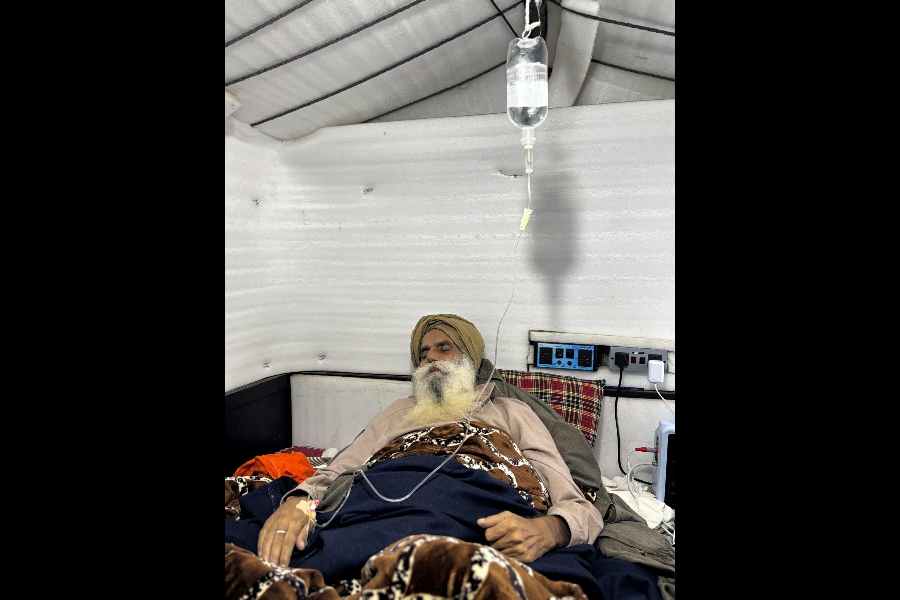Richard Osman hit jackpot when he found his calling in creating compulsively watchable television for his audience in the UK. He has played the role of a producer and later presenter for wildly popular shows like Pointless, Richard Osman’s House of Games and Two Tribes. A regular on BBC One and BBC Two, Osman was the creative director at Endemol UK, where he produced shows like Deal or No Deal and Prize Island. However, Osman spent a large part of the pandemic writing 1,000 words a day in complete secrecy to finish his first book, The Thursday Murder Club.
A hater of the word ‘celebrity author’, he wanted his book to be complete to be accepted by a publishing house instead of striking a deal first and then taking his time to write. The response to The Thursday Murder Club was unprecedented. It was its reception in other countries beyond the UK where the author was not a known face that gave him the confidence to truly accept himself as an author.
While the first book came out in 2020, 2021 saw the release of the sequel, The Man Who Died Twice. Four septuagenarians in a retirement community bring their rich life experience to discuss true crimes that were never solved in his TMC books, until they come across a real crime in their community. The third book of the series, The Bullet That Missed, is set to release in September this year.
Osman has severed ties with his show, Pointless, to concentrate on his writing and while he terribly misses working with the team he built, he is happy to marinate in the anticipation of his latest release. In the meantime, Steven Spielberg has swooped in to acquire the film rights of his first book. The Telegraph spoke to Osman about his journey and what awaits us in September. Excerpts.

Richard Osman with his Pointless co-host Alexander Armstrong
Tell us about the journey of Thursday Murder Club inspired by your mother’s retirement community.
My mum lives in a community where everyone is over 70. So, I decided to have a crime book there with a murder that these people solve with the skills and experience they have gained from their lives. I think my mum was worried that people would be suing me for spilling all sorts of secrets about their lives. Obviously, I made it all up. When I started I didn’t know it was going to be such a phenomenon in the UK and now everybody in that place is so proud, appearing in newspapers and television. There is a big buzz about them. In a funny way, me writing about their community has made their lives even richer and fuller, which is really lovely.
How has the writing journey been different for the first book from the second and the second from the third?
Yeah, you are right. In the first book, I felt, like anybody, that I was trying to figure out how to write a book. ‘Is this okay?’, I would find myself asking. Plus, since I was well-known in the UK, I thought people were just going to buy the book because of that. But it did so well in lots of countries where they have no idea who I am.
By the second book, I finally allowed myself to think that maybe I am an author (laughs), which is a nice position to be in. Obviously, by the time the third one comes, you lose confidence again. So the second book was when I felt much more confident knowing that I loved my characters and the readers did too. So the second book onwards it has been a very different journey and I feel responsible towards my readers to entertain them, give them a good time and take care of my characters for them.
Your characters are at an age that allows you very little time to really live with them. Have you made peace with an inevitable goodbye, if at all?
They are all in their late 70s and one of them, Ibrahim, is in his 80s. What I have done in the first three books is kept the action continuous. The second book was supposed to be called The Following Thursday! Book three also starts straight away. So I have done three books and only covered about six months. Given they can minimum live till their late 80s, I still have a few books up my sleeve.
Please give us a sneak peek into The Bullet That Missed.
In India, you have local television or new stations right? There are local news presenters who are very famous in the area they are from and no one in the rest of the country has ever heard of them. So The Bullet That Missed is about a man who has read the news in the south of England for over 30 years, but no one in the rest of England knows of him. It is the story of one of his co-presenters who disappeared and he has always wondered what happened to her. And essentially the Thursday Murder Club look into that victim, while at the same time being very excited about working with a celebrity. It’s a fun mix of stuff about TV and stuff about news and some good old-fashioned murder!

As a voracious reader of crime novels, was there anything you wanted to do differently when you wrote your own?
I love the framework that a classic crime novel gives you. I love knowing that on page one you can ask a question and you have a contract with the readers to answer that question on the final page. So we can all relax! I take that from the classic crime novel. But there on in, I like to build on my characters, to make my readers laugh, to make them cry. I am trying to write a real story about Britain but going from Point A to Point B in the classic format! In between, I just write the book that my characters tell me to write.
You say there is a contract with the readers about an end. So how do you feel about books with open endings?
Ah! That’s a really good question! I don’t mind it. I don’t mind books that have an unhappy ending. I wouldn’t write one. I admire people who do, but I like to get people what they deserve, what they know is coming to them. I like good people to win and bad people to lose. We are in a world where it feels like the bad people are winning all the time and the good people are losing all the time. I am not going to change the world by writing a book where that doesn’t happen but it’s good to remind people now and again that it’s possible for strong, good, kind people to win.
Steven Speilberg’s production company Amblin Entertainment has acquired the rights of the book. How involved do you want to be in this project?
I am not going to be involved at all! I have worked in television my entire career and one thing that it teaches you is that you do the thing you are good at and let others do the same! It’s like a newspaper –– you have experts in every area and you let them do their job. Steven Spielberg is better at making films than I am. So you gotta leave them to it.
They write to me and tell me what’s going on but I don’t want to be a writer telling them how to do their job. I am going to keep my head down and keep writing. That’s my job!
Osman as a producer, Osman as a presenter, Osman as a writer — how much do you align with these separation of roles and which parts of it do you enjoy and detest?
The thing about television is that there is an entire team working together. And I love that! I love being a part of a team, all brilliant at what they do, just watching them doing their jobs. I absolutely love that! And laughing all the time!
When I started writing, I thought it would be too solitary an activity for me, just me and my computer. But I surprised myself by really loving that too. It was just me and my characters. However, once the book is published, I am suddenly a part of a team again –– publishers, the foreign publishers, speaking to journalists –– that I love!
I think I have the best of both worlds. When I want to hang out with my gang, there is always TV (he has agreed to appear in special episodes of Pointless with celebrities) and I can also be alone in an attic with my imaginary gang of the Thursday Murder Club.
Which parts of Pointless would you miss the most?
I miss the people mostly! I miss going to hair and make-up first thing in the morning. It’s early in the morning, you have your make-up done and also have a gossip for half an hour, everyone pops in and says hi. I am going to miss that! But you can’t do the same thing forever.
Do you also have plans to branch out your writing and look beyond the Thursday Murder Club?
I do, that’s exactly what I want to do. I want to write about a conventional detective who sits at his desk and has people knocking on their door with criminal cases for them to solve. That’s easy for me than TMC because he is going to have cases knocking on his door! So yes, I do want to explore the thriller, something a little more like The Da Vinci Code.
What are you reading right now and the one book that you keep going back to for inspiration?
I don’t read fiction when I write. I am reading Shoe Dog by Phil Knight that documents the inception of Nike. I initially thought how can this be good. But he writes so beautifully. It’s also such an exceptional story of what he built by himself. It’s really taken me by surprise.
The latter would be Agatha Christie. I listen to a lot of audiobooks while I am walking around and I recently heard The Murder of Roger Ackroyd. When you know the twist in the story as well, you are then just listening to a master storyteller covering her tracks all the time. So that was wonderful!










